The Horizons team features many influential Twitter users. This curates a wealth of insights, knowledge, and information about transformation in health and care from other thought leaders across the world.
(Tip: to read an article or watch a video mentioned in a tweet, click on the red text. To view the original tweet, click on the image).
Transforming Perceptions of Nursing and Midwifery
The learning from the Transforming Perceptions of Nursing and Midwifery campaign has been shared across the globe.
"Nurses and Midwives need the confidence to be able to influence - we are not JUST a nurse or JUST a midwife." You can read Bev's blog 'how can decision makers transform the perceptions of nursing and midwifery?' here.
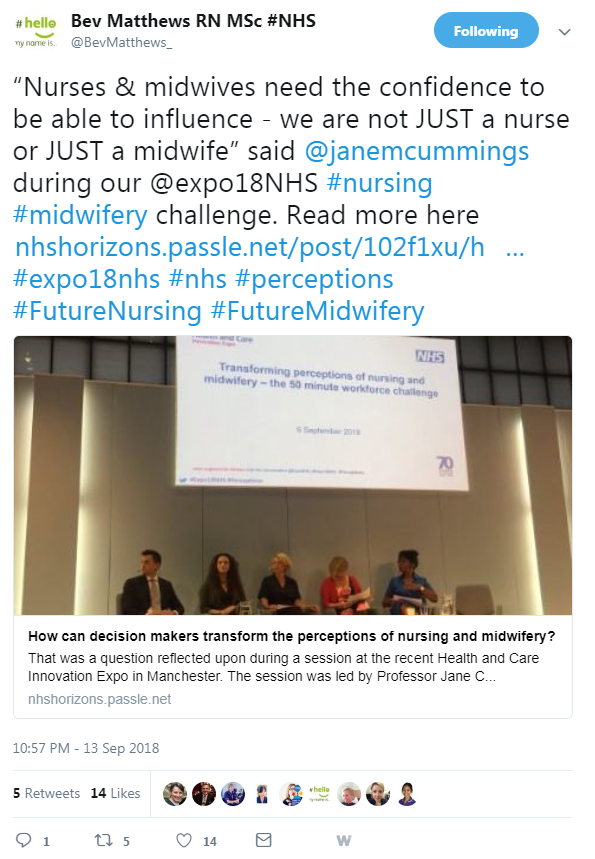
Nurses and midwives were leading influencers at NHS Expo this year, many of them didn't even attend the conference but joined in with the concurrent tweet chat!
Charlotte, one of our Ambassadors who was on the panel at Expo was on the front cover of her local newspaper this week; she saw the newspaper on her way to the meeting to develop resources for the January 30 Day Challenge, which will be about young people in education and encouraging them to pursue a career in nursing and midwifery.
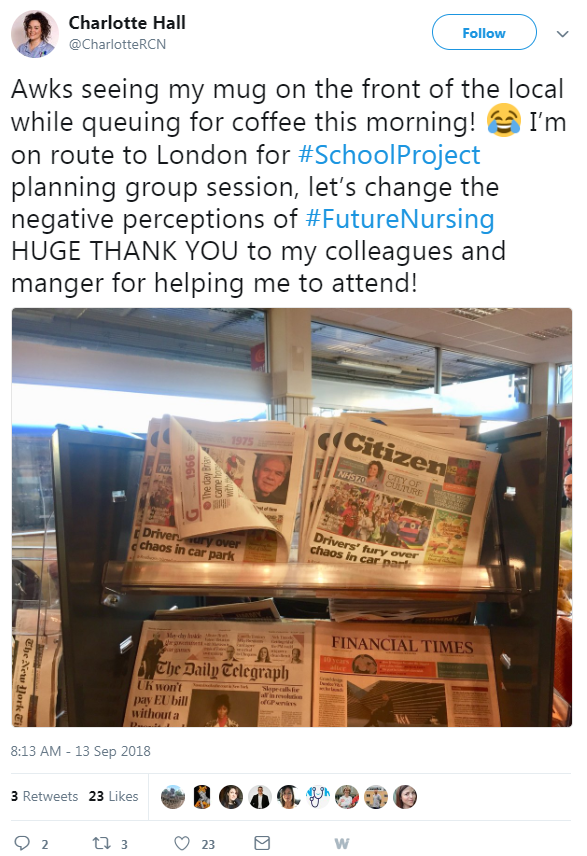
Bev was involved in the workshop to create the resources for the 30 day challenge.

Our Ambassadors made a book of blogs that included a selection of those submitted during the July blogging challenge. The book was presented to Jane Cummings at Expo.

Events this week
Kate facilitated a great social care event in Nantwich this week.
Zoe was in Manchester hearing all about the brilliant improvements being made around urgent and emergency care.
Kathryn facilitated a day with ThinkAheadMH this week.
Helen was at the International Forum on Quality and Safety in Healthcare this week. She presented a breakfast session on "what every healthcare improver should know about social media".
Our staff have far greater reach and influence on social media that our corporate social media accounts. Typically it's because corporate accounts broadcast messages whilst our staff build relationships on social media. Our staff are our spokespeople.
John's work in spreading "advanced access" is one of the most significant efforts in spreading improvement in the history of healthcare.
Twitter is amazing, Leigh, our Comms lead was one of the top influencers at a conference in Australia, without her even being in the country!
The reason why social media is important for improvers:
Rolf the cat was a case study used at the Quality 2018 conference this year, to show how Twitter can help build networks, and share information. You can read more about Rolf here.
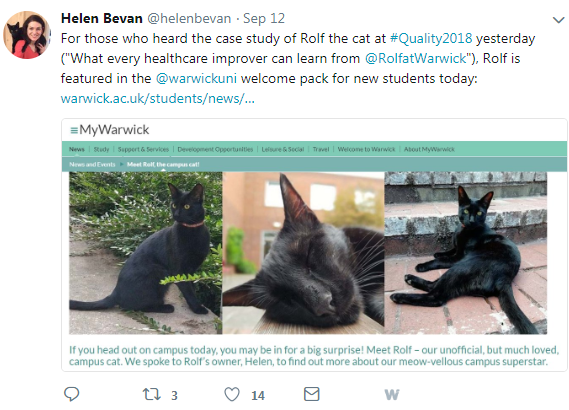
Wellbeing
For World Suicide Prevention Day and every other day for that matter - never ever forget that the world is better with you in it. If you ever feel otherwise, please never be afraid to ask for help. And please make sure you offer a listening non-judgmental ear to those who need it.
Compassion should be at the heart of all we do.
"You need a philosophy for life: a combination of peace, happiness, and positivity" Leigh was inspired by this quote when at the #EPCT workshop kindly hosted by Age UK London.
Making Change Happen
It can be very stressful being an internal change agent and challenging the status quo. My team gets requests for learning and training on resilience. But does resilience training work and is it a good investment? Read more here.

Here is a list of small things which we can do every day to build our systems perspective.

Paul Bromford explains why building relationships based on openness, respect and accountability is a better strategy for improvement than benchmarking and best practice, read more here.

If you want to deliver change in your organisation, turn your big project into a series of smaller projects and let the teams get to work. Read more here.

Committed to inclusion and diversity? Richard Llalleman says it's important to measure numbers of people from diverse backgrounds in specific roles and to also use more advanced people analytics to measure "distance" and "interaction". Read more here.
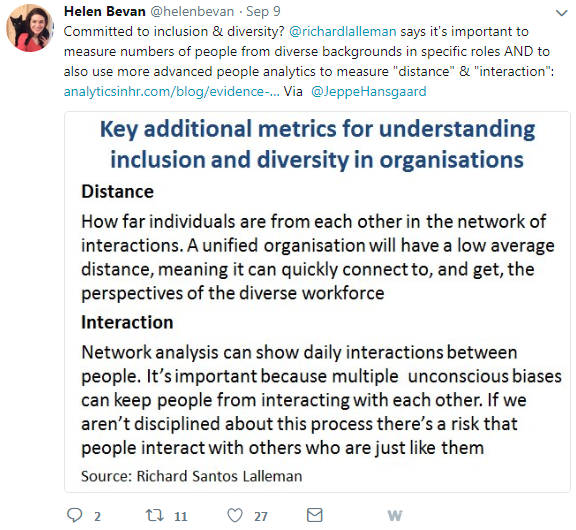
What's the difference between mission, vision, purpose, strategy and goals? Where do values fit? It's important to distinguish them and how they relate to each other because there's an order of operations, where each one drives the next. Read more here.
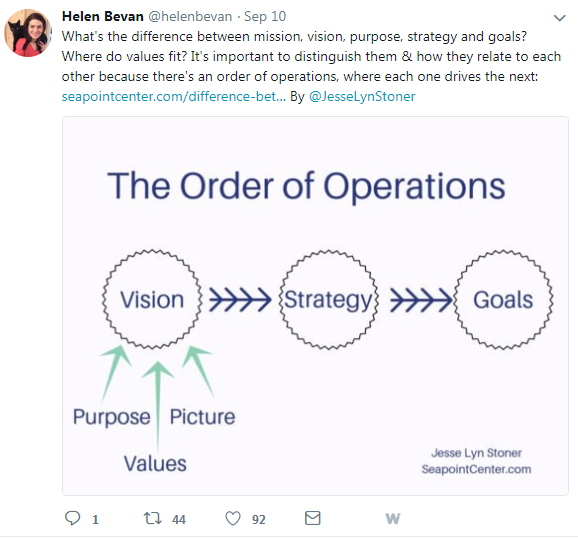
In terms of spread and scale of change, there is often a "chasm" between the innovators/early adopters and the rest of the population.

"We can improve almost anything we want to change... but there's a catch; when there's a local improvement, it tends to stay local."
This model: towards a science of spread was presented at the #Quality2018 conference.
"There is a science of improvement but is there a science of spread?"
Scotland has applied the Juran trilogy (quality planning, quality improvement and quality control) in its systematic approach to reducing healthcare associated infection.
The Everett Rogers model of attributes of a succesful innovation is described by Don Berwick and Jason Leitch relates Scotland's approach to healthcare associated infect to these attributes:
Here is a great version of the Everett Rogers "diffusion of innovation curve".
Resources
Google's Aristotle project found that "the capabilities of the individual team members mattered less for team performance than group processes (how team members shared information and collaborated)".
This website lists free tools to support collaboration, team development and change. Find out more here.

Here is a great little 2x2 matrix for prioritising and improving the quality of our decision making. Read more here.

Leadership
Researchers have sought to create an 'algorithm' for a successful 21st century CEO. Read more here.
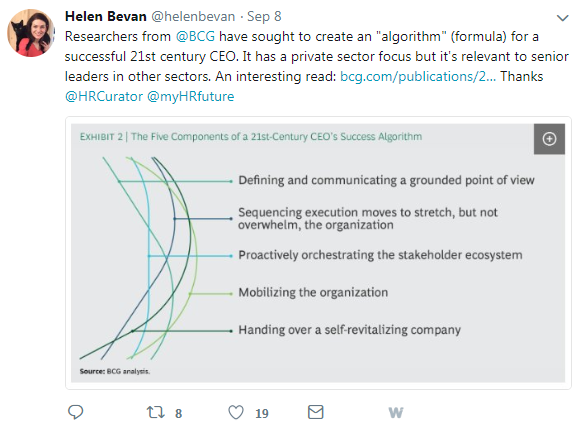
Applications for the Leadership for Empowered and Health Communities progress end soon. Find out more here.

Phil Hadridge has produced this great little note on the routines for facilitators to create the conditions for great meetings. There are simple but powerful actions that should be a discipline for every meeting.




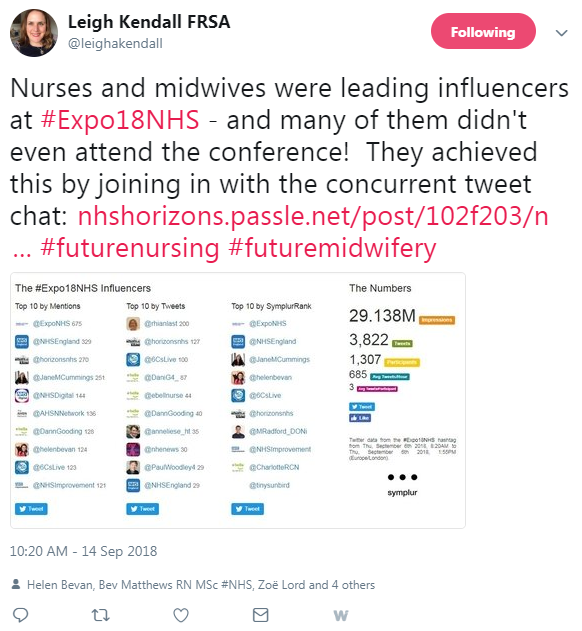




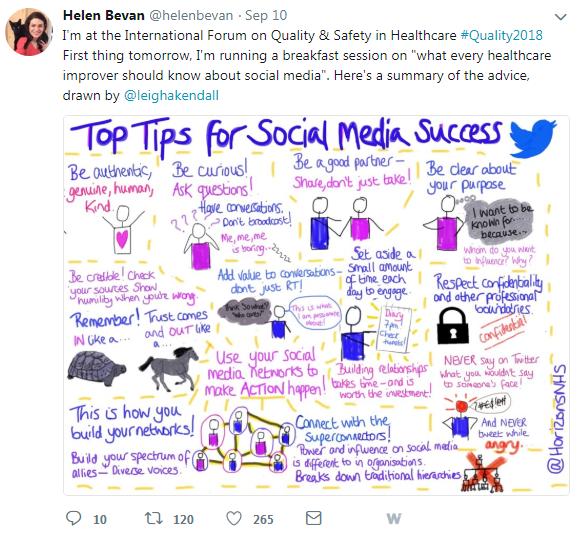
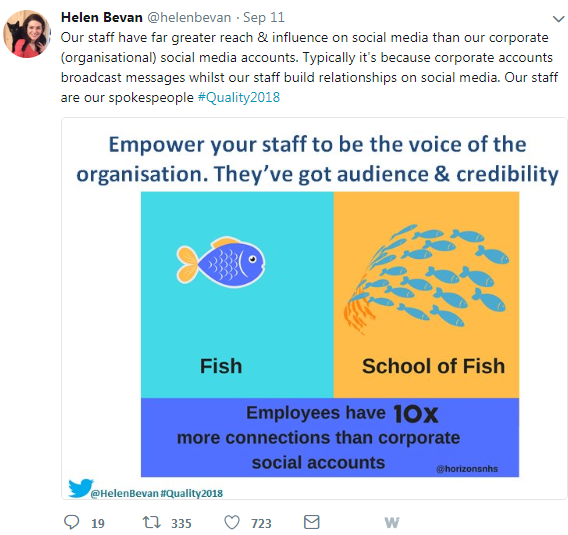
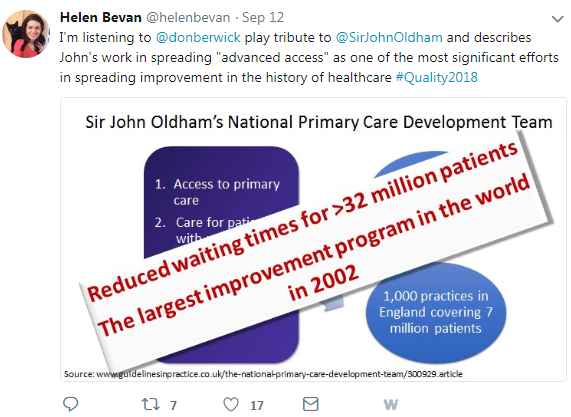





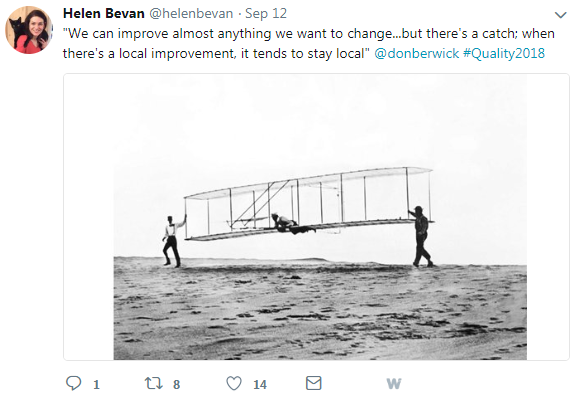







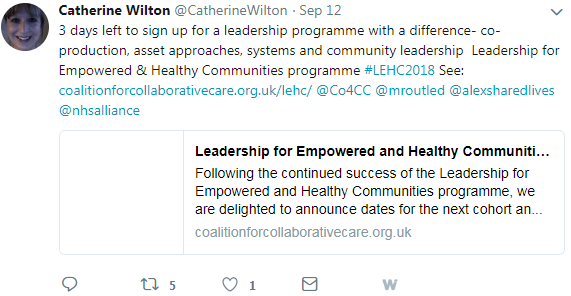

/Passle/5a5c5fb12a1ea2042466f05f/MediaLibrary/Images/6168334917af5b10f4bf1d30/2022-04-14-15-27-52-040-62583d78f636e9115805b2d5.png)
/Passle/5a5c5fb12a1ea2042466f05f/MediaLibrary/Images/6168334917af5b10f4bf1d30/2022-08-05-09-59-36-465-62ecea08f636e906acfed639.jpg)
/Passle/5a5c5fb12a1ea2042466f05f/MediaLibrary/Images/6168334917af5b10f4bf1d30/2022-07-28-14-57-17-405-62e2a3cdf636e9180c9835cb.png)
/Passle/5a5c5fb12a1ea2042466f05f/MediaLibrary/Images/6168334917af5b10f4bf1d30/2022-07-20-10-16-56-533-62d7d618f636ea07987f6668.png)
/Passle/5a5c5fb12a1ea2042466f05f/MediaLibrary/Images/6168334917af5b10f4bf1d30/2022-07-15-09-55-32-858-62d13994f636ea1398e71aa9.jpg)